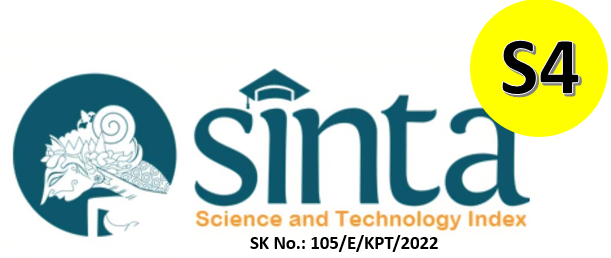Evaluasi Tempat Penampungan Sementara (TPS) Sampah (Studi Kasus: Kota Bandung)
DOI:
https://doi.org/10.29080/alard.v9i1.1692Keywords:
Evaluasi, TPS, Pengelolaan sampah, Kota BandungAbstract
Bandung City is one of the highest solid waste-producing cities in Indonesia. Waste management needs to be organized so that the waste produced does not harm urban areas. One example of waste management is providing temporary waste storage sites (TPS) as intermediate transfer stations. One hundred fifty-six permanent TPS operates in Bandung, spread over 30 sub-districts with various conditions, both running well and unsuitable conditions affecting waste handling. This study aims to identify the condition of TPS waste management in the city of Bandung and evaluate it based on technical criteria for appropriate TPS buildings. The method for assessing the feasibility of TPS is assessed using 17 criteria, including criteria for TPS buildings and facilities. The evaluation was carried out at 44 TPS in Bandung. The evaluation results show seven criteria for transfer stations with a high degree of conformity and ten for a low level of conformity. The evaluation results resulted in the need for efforts to improve and develop TPS so that it can be used according to the criteria.
Downloads
References
Chaerul, M., & Dewi, T. P. (2020). Analisis Timbulan Sampah Pasar Tradisional (Studi Kasus: Pasar Ujungberung, Kota Bandung). Jurnal Teknik Lingkungan, 98–106.
Damanhuri, E., & Padmi, T. (2019). Pengelolaan Sampah Terpadu. Bandung: ITB Press.
Fang, W., Huang, Y., Ding, Y., Qi, G., Liu, Y., & Bi, J. (2022). Health risks of odorous compounds during the whole process of municipal solid waste collection and treatment in China. Environment International, 158, 106951.
Hardiatmi, S. (2011). Pendukung keberhasilan pengelolaan sampah kota. Jurnal Inovasi Pertanian, 10(1), 50–66.
Höke, M. C., & Yalcinkaya, S. (2021). Municipal solid waste transfer station planning through vehicle routing problem-based scenario analysis. Waste Management & Research, 39(1), 185–196.
Mirwan, M., & Hapsari, D. R. (2022). Pengembangan TPS Kelurahan Bringin Berbasis 3R Kecamatan Sambikerep Kota Surabaya. Prosiding ESEC, 3(1), 112–117.
Mulianingsih, S. (2019). Manajemen Sampah Padat Di Kota Bandung Dan Metode Altenatif Pengolahannya. PAPATUNG: Jurnal Ilmu Administrasi Publik, Pemerintahan Dan Politik, 2(1), 170–179.
PD Kerbersihan. (2018). Kriteria TPS. Bandung. UPT Pengelolaan Sampah Dinas Kebersihan Kota Bandung.Sinaga, D. (2014). Buku Ajar Statistik Dasar. Jakarta: UKI Press.
Sugiyono, D. (2022). Metode penelitian pendidikan pendekatan kuantitatif, kualitatif dan R&D (2nd ed.). Bandung: Alfabeta.
Suherdy, A. Z., Ainun, S., & Halomoan, N. (2019). Perancangan Alat Penilaian untuk Pengembangan TPS Menjadi TPS 3R di Wilayah Perencanaan IV Kota Bogor. Jurnal Reka Lingkungan, 7(1), 12–22.
Tchobanoglous, G., & Kreith, F. (2002). Handbook of solid waste management. McGraw-Hill Education.
Widyarsana, I. M. W., & Daniel, O. I. (2020). Peningkatan Kapasitas Tempat Penampungan Sementara (TPS) Ciroyom Menjadi Stasiun Peralihan Antara (SPA) Berskala Kawasan di Kecamatan Andir, Kota Bandung. Cantilever: Jurnal Penelitian Dan Kajian Bidang Teknik Sipil, 9(1), 25–32.
Yadav, V., Karmakar, S., Dikshit, A., & Vanjari, S. (2016). A feasibility study for the locations of waste transfer stations in urban centers: A case study on the city of Nashik, India. Journal of Cleaner Production, 126, 191–205.
Published
How to Cite
Issue
Section
License
Copyright (c) 2023 This is an Open Access article distributed under the terms of the Creative Commons Attribution 4.0 International License, which permits unrestricted use, distribution, adaptation, and reproduction in any medium, provided that the original work is properly cited.

This work is licensed under a Creative Commons Attribution-ShareAlike 4.0 International License.
Authors who publish with this journal agree to the following terms:
- Authors retain copyright and grant the journal right of first publication with the work simultaneously licensed under a Creative Commons Attribution License that allows others to share the work with an acknowledgement of the work's authorship and initial publication in this journal.
- Authors are able to enter into separate, additional contractual arrangements for the non-exclusive distribution of the journal's published version of the work (e.g., post it to an institutional repository or publish it in a book), with an acknowledgement of its initial publication in this journal.
- Authors are permitted and encouraged to post their work online (e.g., in institutional repositories or on their website) prior to and during the submission process, as it can lead to productive exchanges, as well as earlier and greater citation of published work.



